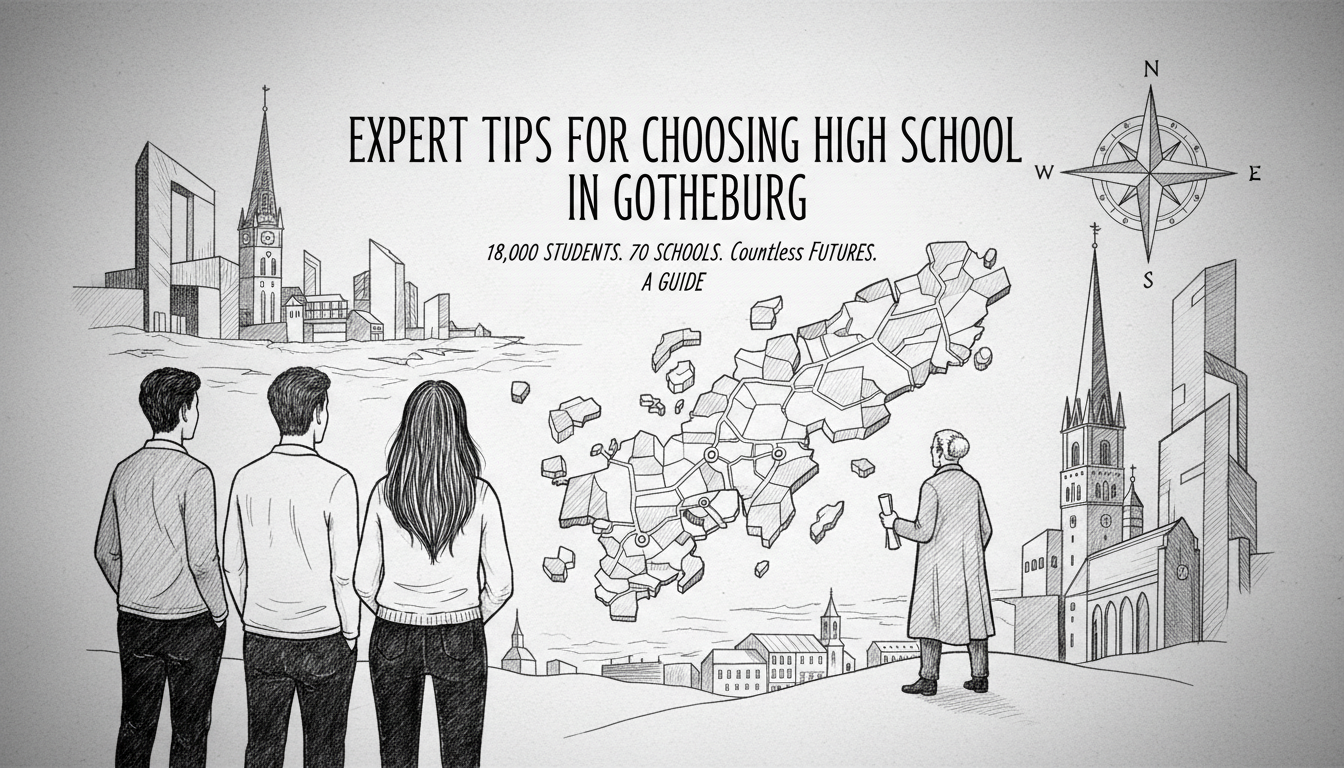Approximately 18,000 ninth-grade students in the Gothenburg region face a crucial educational decision this spring. These young learners must select among 70 different high schools, 18 national programs, and numerous specialized tracks. The choice represents one of the most significant early academic decisions in the Swedish education system.
Study and career counselor Kajsa Christiansson offers practical guidance for navigating this selection process. She emphasizes starting with personal interests rather than following friends or trends. Students should consider what subjects genuinely engage them and where their natural talents lie.
The Swedish gymnasium system differs significantly from high school models in many other countries. Students choose between university preparatory programs and vocational tracks at age 15 or 16. This early specialization creates both opportunities and pressure for young people making their first major career-oriented decisions.
Christiansson recommends visiting multiple schools during open house events. Seeing the facilities, meeting teachers, and observing classroom environments provides invaluable insights. Students should ask current pupils about their experiences rather than relying solely on brochures or websites.
The Gothenburg region offers particularly diverse educational options due to its size and economic importance. As Sweden's second-largest city, it provides specialized programs in maritime studies, logistics, and engineering that reflect the region's industrial strengths. These programs often lead directly to local employment opportunities.
International families should note that Sweden's gymnasium selection process occurs earlier than in many countries. The application deadline typically falls in spring, with decisions announced before summer break. This timeline allows little room for last-minute changes of heart.
What happens if students realize they've chosen the wrong program? Swedish schools generally permit program changes during the first semester, but this can mean catching up on missed coursework. Better to invest time in thorough research beforehand than face disruption later.
The counselor stresses that no single 'perfect' school exists for every student. Different institutions suit different learning styles and career aspirations. Some thrive in large, comprehensive schools while others prefer smaller, specialized environments.
Parents often wonder about the long-term implications of gymnasium choices. While program selection doesn't permanently determine career paths, it does create initial momentum. University admissions consider specific course requirements that begin at the gymnasium level.
Gothenburg's educational landscape continues evolving with new programs addressing emerging industries. Green technology, digital media, and healthcare specialties have expanded significantly in recent years. These developments reflect broader economic shifts across Western Sweden.
The selection process represents more than just choosing schools. It's the first major step where Swedish teenagers exercise substantial control over their educational journey. The decision carries both practical consequences and symbolic importance in a young person's development.
